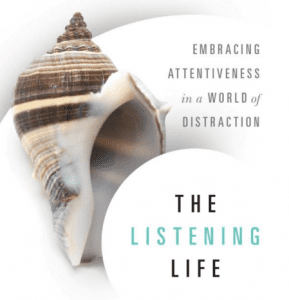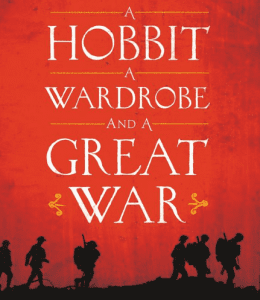Karen Spears Zacharias is an author and investigative journalist who teaches First Amendment Rights at Central Washington University in Ellensburg, Washington. In her upcoming book, A Silence of Mockingbirds: The Memoir of a Murder, Karen turns her investigative eye to the murder of three-year-old Karly Sheehan of Corvallis, Oregon. At one time, Karly’s mother, Sarah Sheehan, lived in the Zacharias home and was embraced as a daughter by the family.
What happened to Karly? What was Sarah’s involvement? And how did Karly’s father, an Irish immigrant, end up as the state’s primary suspect in the abuse investigation? A Silence of Mockingbirds is not a simple love story – it is the troubling tale of a father’s love for the daughter he was unable to protect.
Question: How did you meet Sarah Brill Sheehan?
Karen: As a young teenager Sarah Brill was assigned to an in-school detention class that I was supervising. Sarah possessed the jaw-dropping beauty of Halle Berry, and the reckless nature of Casey Anthony. She embodied a certain dangerous vulnerability that I recognized, so I reached out to her in a mentoring way that teachers often do.
Question: How was it Sarah came to live with your family?
Karen: At age 19, Sarah got pregnant. She asked my husband and me to adopt that child. For a variety of reasons we didn’t, but after Sarah gave birth she came to live with us. We considered Sarah our “adopted daughter.”
Question: So Karly wasn’t her first child?
Karen: No. She adopted her first daughter out to someone I introduced to her. Karly was the daughter she had with David Sheehan. A native of Kenmare, County Kerry, Ireland. David met Sarah in Corvallis, Oregon, home to Oregon State University. David was an engineer in town for training at Hewlitt-Packard’s Corvallis campus, when the two met. They married in a Reno rush, lived in Ireland for a short time, and eventually settled in Corvallis, where Karly was born in January 2002.
Question: What happened to Karly?
Karen: She was murdered on June 3, 2005.
Question: This book is true crime memoir. Can you discuss what that means?
Karen: I worked the cop beat as a reporter in Oregon for many years, so I knew all too well the inherent dangers of writing true crime. Fortunately, I had the benefit of being a known commodity in my community. Our local police trusted me to get it right. I didn’t have that advantage with A Silence of Mockingbirds. Although I am an OSU alum, I knew no one in law-enforcement in Oregon’s Benton-County when I began my research. It took me years to gain the trust of some of the law enforcement and attorneys on this case.
I suppose it was natural for me to approach this story as a crime reporter – it’s what I knew. I had years of experience in courtrooms and courthouses. I spent three years writing and rewriting
A Silence of Mockingbirds is straight true crime. When I sent the manuscript to my agent, Alanna Ramirez at Trident Media in New York, she read it and then called me early the next day. Alanna told me that while she thought I had written a very compelling true crime story, there was a problem with the manuscript. “What interests me in this story is your relationship with this family and you’ve told us very little about that,” Alanna said. “You need to rewrite it as memoir.”
I knew the moment Alanna said it that she was right. It’s the same sort of knowing you get whenever you hear truth. You can almost feel your bones shift and right themselves, but the knowledge of it sickened me. I went straight to my office, where a lot of wailing and gnashing of teeth ensued. For six weeks, the then 435-page manuscript set on my desk staring at me like a flame-eyed demon. I had no idea, none at all, how I would deconstruct this book and start again, but I was determined to do so. Then one day I was cleaning up my desk (which is what writers do when they can’t figure out what to write) and I came across some of the letters I had written to Inmate Shawn Field, the man convicted of killing Karly Sheehan. It was one of those Ah-ha moments that Oprah speaks about so frequently. My Ah-ha moment came when I realized those letters were the opening for the true crime memoir, and I began to write. A year later, I had an entirely new manuscript.
Question: How does true crime differ from memoir?
Karen: Having authored three memoirs now, it’s not the differences between true crime and memoir I notice but the many ways in which they are similar.
Are you familiar with The Adversary: A True Story of Monstrous Deception by Emmanuel Carrere? It’s a deeply disturbing account of Jean-Claude Romand, a Frenchman who is serving a life sentence for killing his wife, his children, and his parents in 1993. Romand was France’s Bernie Madoff. For years he lived a fictionalized life, reportedly working as a medical researcher for the World Health Organization, while bilking friends and family of funds to support his lies and lifestyle.
Carrere, who struck up a relationship with Romand after he was imprisoned, weaves his own personal narrative into the murderous account. The book opens:“On the Saturday morning of January 9, 1993, while Jean-Claude Romand was killing his wife and children, I was with mine in a parent teacher meeting.”
It does seem that the most compelling true crime stories are those in which the writer finds themselves entangled in personal narrative. That has certainly been the case for the beloved crime writer Ann Rule whose long-career started with her relationship with serial-killer Ted Bundy.
I met and interviewed Ann during my reporting years. She had suggested at the time that I turn my eye toward writing true crime. When I told her about Karly’s death, Ann said, “This is your Ted Bundy story.” I’m humbled and overwhelmed that Ann Rule has given such a resounding endorsement to this work, calling it “a must read”.
In my opinion, the pitfall for any memoirist is the temptation to cling to one’s own mythology. Unfortunately, some memoirists write as if they are elementary school boys trying to out-wee each other. Such writing isn’t about honesty as much as it is about trying to crank up the shock value. But when the writing is about the discovery of truth, it matters not whether one is writing true crime or memoir or fiction.
Question: Does the book contain specific recommendations for individuals and society in preventing child abuse?
Karen: Yes. Absolutely. The book is being released in April to coincide with National Child Abuse Prevention month. I have partnered with national advocacy groups such as Childhelp (Childhelp.org), Child Abuse Intervention Centers, the National Children’s Alliance (NationalChildrensAlliance.org) and Fathers and Families (FathersandFamilies.org) to help raise awareness about our nation’s child abuse epidemic.
Flannery O’Connor said it best: “The truth doesn’t change based upon our ability to stomach it.”
Abused children don’t need us to feel sorry for them. They need us to act on their behalf – as family, as friends, as neighbors, as teachers, as doctors, as law enforcement officers, as reporters, as pastors, and as legislators. That is the only way we are going to curb this crisis. We cannot fix this world but we can change it.
But we can’t even do that until we educate ourselves on what we are failing to do and what we need to do better. A Silence of Mockingbirds provides practical insights into the subtle, and sometimes glaringly obvious things we overlook, the multitudes of ways in which abuse insinuates itself into our neighborhoods, and our communities, and our families. Everyone in Karly Sheehan’s life was college-educated. Many of them were trained professionals who were supposed to be able to identify and prevent child abuse. Yet, Karly’s abuse had been ongoing for months prior to her death. These people should have known better. Why didn’t they?
Question: Will you write another true crime?
Karen: I try to use my voice as a writer to speak for those whose voices have been marginalized and/or muted. So while I don’t think of myself as a true crime writer, dead people often play heavily into my work, so I suppose it’s entirely possible.
For more information on this book, go to MacAdamCage.com.
For more information on the author, go to karenzach.com
To schedule an event, please contact [email protected]












